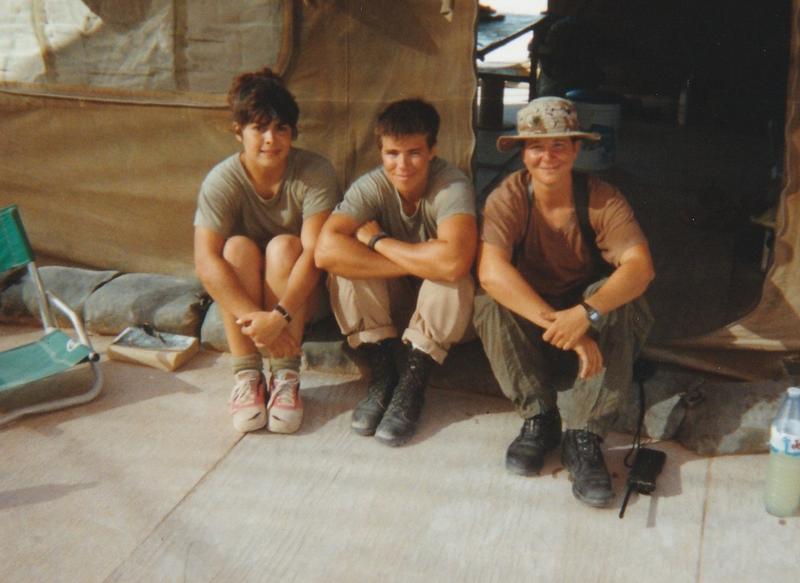
Judy Gatewood-Keim was a self-described thrill seeker looking for a challenge.
She served in the military for nearly 30 years, and for more than half of that time, she was hiding the fact that she had multiple sclerosis. Her wife, Cathi, interviewed her in WPLN’s studio earlier year as part of StoryCorps’ Military Voices Initiative.
When Cathi asked how Judy’s military service changed her, she recalled her very first duty assignment.
“My supervisor, Master Sergeant Hayward, told me, ‘Boy, Keim, you’re really one confident, cocky SOB.’ ”
And Gatewood-Keim felt like she lived up to their confidence.
“Those deployments made me realize — or at least made me think — that I could handle difficult situations [that] life tossed at me. You know, I was going to be able to deal with it. It wasn’t going to crush me in any way.
“And this was going to prove useful to me later on, when I was diagnosed with multiple sclerosis.”
Gatewood-Keim’s diagnosis was connected to her time in Desert Storm and Desert Shield, she says. She found out about 12 years into her service — and hid it from her superiors for the next decade and a half. She credits her resiliency to helping her get through it.
“There is a field in philosophy, now. It talks about ‘post-traumatic growth.’ And so for me, my deployments, I think gave me post-traumatic growth,” she says. “Stressful situations now enable you to be able to say, I saw that, I faced that.
“So, when you see another stressful, difficult, challenging situation, then you draw on your past experiences. And rather than sort of retreating in uncertainty or fear of letting it paralyze you, you have this ability to again resist over them. It’s kind of like working out. … But it’s for the mind and for the body.”


